His unparalleled insight into statecraft and brilliance upon the battlefields would end up dramatically shape the fate of Wei's rival state Qin, transforming it from wounded stagnation to stark renewal, then into a peerless power that became an unstoppable threat to all who opposed it. As Wei would eventually discover to its horror, their king's moment of hesitance and kindness would come to them at a terrible cost. Here, the first great state of the Warring States era would be resoundly crippled by the age's 2nd and the 3rd at the same time.
What's more, Shang Yang's journey would enact immense changes to Qin that would irrevocably shape its national character and destiny and that of the late game of the Warring States era. With a keen mind and a revolutionary spirit, Shang Yang implemented a series of extremely unpopular, but also extremely decisive reforms that greatly strengthened Qin's military and economic power. He abolished feudal privileges, created a centralized bureaucracy, and implemented a strict legal code that punished both nobles and commoners alike. With him, Qin found it's black guiding star.
Black because he was deeply despised both within and without his state and even across the gulf of time itself. Centuries and millennia of men after his wake have rejected him with visceral prejudice. However what is incontrovertible is that without him, Qin would not have ascended where it did, it may have not even survived the ordeal of the late game. And China itself may even have been irrevocably different without him. Qin owed all of its late gains to him, even if it was perhaps too proud to admit that fact...after having killed him.
Shang Yang was born into a miraculous object lesson. Though nothing was know of Shang Yang's youth and his upbringing~ except that he was descended from the concubine of a prince from the small state of Wey 卫 (not Wei, his eventual host, but a much smaller state in Central China) and that he had a keen interest in law, studying it often in his spare time, the specifics of his youth was a blur.
There were no anecdotal deeds nor scenes full of virtue depicting his early life that were tailored for instructive parables. However, he would not have missed the monumental changes in the world which he lived. All of the small central states of this era would not have missed the unlikely but unstoppable ascension of Wei.
Duke Xiao's beginning were marked by setbacks reminiscent of his predecessors, around the time he hosted Shang Yang Qin suffered a recent series of attacks from the small neighbors of Zhao and Han. Early on in his reign, an ominous comet appeared in the western sky.
He believed that the best way to govern a state was through the use of strict laws and harsh punishments, which would deter people from committing crimes and ensure social order. Despite this authoritarian streak, he was also sharply revolutionary. He was not afraid to challenge conventional wisdom or take bold action to achieve his goals. For example, he defied the traditional aristocratic elite by promoting a meritocratic system of military ranks, which rewarded soldiers based on their abilities rather than their social status. Furthermore, he believed in 一民 or equality before the law. Whereby even nobles receive the same punishment for the same crimes.
When Shang Yang appeared before Duke Xiao, the Duke was intrigued by him, and asked for his advice on how to restore Qin to its greatness. Not knowing if his ideas would be welcomed nor if the intention of his potential host is sincere, Shang Yang hid behind conventional mainstream philosophical ideas. During their first 2 meetings Shang Yang suggested some tenants from idealism born from Confucianism and feudal chivalry. But all of these philosophies did not interest Xiao in their first 2 meetings.
However, during their 3rd meeting Shang Yang was allowed to give his own insights to his vision of Legalism~ heavily based from the successful framework
a generation prior, with the aim of creating a 富国强兵 "rich nation and strong army" Xiao became deeply fascinated. Xiao was so engrossed by the proposal listed by Shang that the 2 then talked for some 3 days and nights straight without tiring about implementing various reforms and laws needed to realize them. At last, Xiao was duly convinced of the value of Legalism and elevated Shang Yang to the position of the Duke's chief advisor. Their partnership would last 2 decades, during this time Qin was reformed painfully from top to bottom.

Legalism: its Radicality, its Cruelty
For most of the next 20 years, Shang Yang would attempt to drastically reform the Qin state for more efficient agriculture and war「农战」. It should be stated that Shang Yang was passionately opposed by detractors ever since first setting foot inside Qin in his first year. After charming Duke Xiao Shang was fiercely opposed by many if not most of Xiao's ministers and Qin's conservative nobles, but despite endless obstructions and conspiracies against him, Shang maintained the good graces of his patron and persevered with realizing his reforms. The specific episodes where his controversial reforms broke out in heated arguments or violence will be noted in selected sections below.

Modern voices often deride Legalism as a system of control for the pure sake of regulating behaviors. But while the system was indeed designed to rein in individuals and restrict their habits (after all that's literally the nature of laws, to outline red lines, prohibit excess, and proscribe punishments) it has many aspects that are also starkly modern and revolutionary, namely, equality before the law, that same for a crime same punishment would be applied to elites, even crown princes, and this was an ideal that Shang Yang strived for in the 350 BCs 2300 years ago.
Notably, Legalist's attacks against the nobility also paved the way for mass abolition of slavery in Qin and realm wide abolishment of slavery when Qin reunified China. It should be pointed out that the 2 very concept of equality before the law~ and mass abolition of slaves were 2 aspects that even Enlightenment thinkers like Voltaire and Lincoln fought their entire lives against in only recent centuries. What is revolution but forced change? And what a vantage Shang Yang had raced to so early on even before those recent men?
Land Reform 垦草令
Shang Yang is credited with implementing a significant land reform policy in Qin. Under this policy, land was redistributed to individuals based on their ability to cultivate it, rather than their social status. To realize this, he broke up merchant farmers that hoarded unused strips of lands and lowered social barriers from owning and farming lands. This policy had a major impact on the economic development of Qin, and helped to create a more prosperous society with a secured food sector. Shang Yang encourage people who are productive in farming and those who produce a lot of grain and can be exempted from corvee. Meanwhile, those who repeatedly fail to meet quotas could be severely punished and even demoted into slaves.
%20(2).jpg)

The old "Well-field system" ~ named after the checkerboard shape which resembles the Chinese letter for "well" 井. An ancient system, with many Zhou polymaths and historians attributing it to the earlier Shang and Xia dynasties. But likely created at the start of the Zhou dynasty. In this system a square area of land was divided into nine identically sized sections; the eight outer sections (私田; sītián) were privately cultivated by farmers class. While all lands were lordly- or government owned, only the center "public" part which was farmed by all 8 families go to the lord as tribute.
Immediately after coming to Qin in 359 BC Shang Yang began with an aggressive series of land reforms. In order to stimulate the development of agriculture, Shang Yang made a policy to increase the number of individual private farmers so that people from all walks of life across the country could engage in agriculture; prohibited farmers from buying grain and forced them to concentrate on farming; Shang Yang then embarked on a large anti-corruption campaign that clean up the administration of officials, ensure that officials are honest and that government orders and measures are consistent and do not delay official duties. Shang Yang then Implement a unified tax system, the land rent is uniformly collected according to the amount of farmers' income and grain in land tax with increase taxes on nobles and merchants.
QIN REGAINS FOOTING
An armored Qin crossbowman. One of Shang Yang's major military reforms is to forge a vast military industrial complex for the resuscitating Qin war machine. To augment the fighting power of even the lowest of Qin soldiers, Shang Yang began to adopt crossbowmen en mass. Qin crossbow men would be instrumental in the full following century of nearly ceaseless Qin expansion. By the late Warring State's era both Qin and Chu had vast legions of armored crossbowmen.
During Shang Yang's early tenure, Qin was able to remain strong in some battles. In 358 BC, Qin crushed the army of Han to the east and secure a foothold into the entrance in the Central Plains. With this stepping stone, Han's southern neighbor of Chu and Han's northern neighbor of Wei soon secured treaties with Qin. After this period and more of Shang Yang's military reforms, Qin would greatly intensify its meddling in the other Central Plain state's politics.
Equality Before the Law 一民法
Shang Yang then implemented Standardization of Laws and Punishments: Shang Yang introduced a set of standardized laws and punishments that applied equally to all citizens, regardless of their social status. Included within his initial package of his agricultural reforms, Shang Yang began to increase the taxation of nobles. Now, even nobles may farm or be ordered to farm. These new laws stipulated that children of nobles must serve corvee except the eldest son, and increase the conditions for their exemption from corvee; Shang then prohibit nobles and officials from hiring servants and amassing slaves and forced the children of the nobles to work by themselves.
Rule the country by law. Law precedes credit and authority; the main thrust of many of Shang Yang's laws focused on agriculture and war. There is no hierarchy of punishment: the nobles, civilians, and slaves are included in the legal norms, and they are required to abide by the same law.
This was a significant departure from the previous system, which favored the aristocracy and allowed them to escape punishment for crimes (such as monetary reparations or even using their privilege's to skip certain punishment altogether.) The new system of laws and punishments helped to create a more just and orderly society. Furthermore, it made all nobles punishable by the King. These laws laid the foundation for Qin to transform from a land of haughty warrior aristocrats and into the empire that it will become (and the shape China will take for the next some 2000 years.)
.jpg)
A map of relations and "9 Relations" the Jiuzu Wufu 九族 五服- or "Nine clans and Five Dresses" map details how an individual fits within his or her community. At the center of the map is Ziji 自己, or the self- the individual, but he is not an island. With each individual comes those of his parents- the people who had put him in this world. Extending form the parents we see the extension of the relations and obligations to the clan of the individual's parents as well. The highest level of respect and obedience is accorded to the parents- especially the father, and from there, to one's kins siblings, then extending out, to uncles and cousins successively according to closeness to the blood of the parent and seniority. Finally it extends out beyond the blood clan and at the furthest reaches to those of in-laws and their families.
After his first round of agricultural reforms were met with success (despite fierce resistance by both nobles and many commoners) in 356 BC, Shang Yang then began to crank up his attempt to strip the Qin aristocrats of their hereditary power and power blocs. His already covertly inserted in several mandates in the prior agricultural reform to tally the nobility's power and wealth. Though household registration 户籍 nationwide, Shang Yang now could systematically gauge the power of different noble clans and their satellites.
Draconian Collectivism 什伍连坐法
Now began the most hated aspects of Shang Yang's reforms, both aimed at fostering social obedience and drastically improving the Qin military. With the registration system in hand, Shang Yang began to implement a set of laws that organized several families (and later~ like wise in the military) into 1 unit. Residents would supervise and report each other, if one family breaks the law, the unit would be punished together.
The measure, though Draconian, was not Shang Yang's invention. As early as the Spring and Autumn Period, centuries ago Qi had already implemented the 什伍 Shiwu system, which either divided ten families or five families as a unit. The Shizhang and the Wuzhang were responsible for the security of the village, requiring that anyone who appeared suspicious be reported. Later on this was adopted in Wei during Li Kui's reforms 1 generation prior, and having grew up in this system, Shang Yang exported it to Qin.
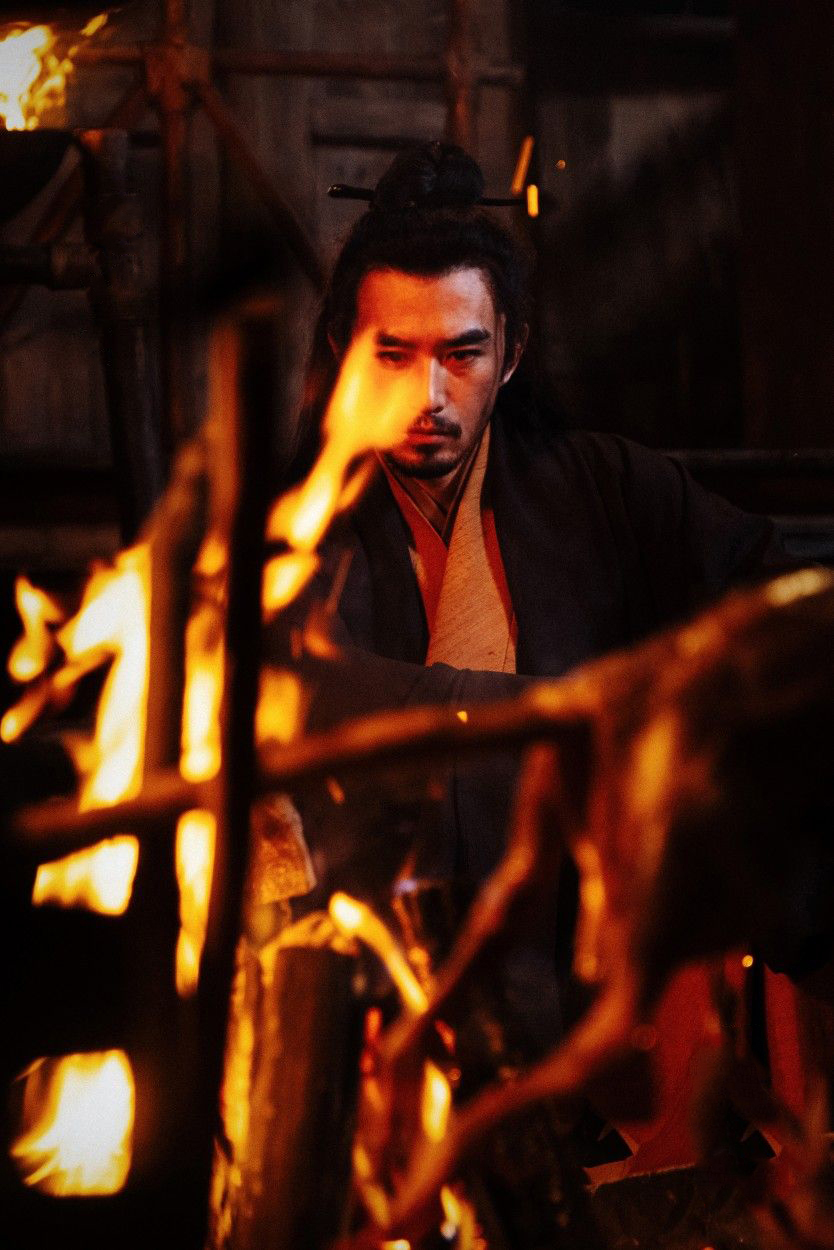
What's more, for grievous treasons against the state, those who failed to report it would be cut in half. While those who did report on the traitor would be greatly rewarded as if they had slain an enemy in battle (that is, rewarded with promotion of 1 noble station) after the beheading of the traitor, would be given the confiscated house and lands of the executed offender. Shang Yang also stipulated that those who travel far and those who travel in hotels must have a certificate issued by the government, and hotels cannot accommodate passengers without certificates, otherwise the owner will be guilty of the same crime as the offender. In all, these collective law brought great suffering to the people and were deeply unpopular. After Qin's unification of China these set of laws were one of the primary reasons that the rest of the states revolted against the Qin.
Abolishment of Feudal Ranks & Lands 废除分封制: 推行县制
Shang Yang grant titles and fields according to military merits, and abolish the privileges of old nobles without military merits.
As we have previously established, this set of punishments did not leave out the Qin aristocracy. Shang Yang abolished the old feudal land grants and stripped the Qin hereditary aristocracy of their titles and privileges. Now all hereditary fiefs are turned into counties and commanderies to be governed by appointed administrators who are hired and fired through proven merit and at the King's leisure. Now, titles and privileges are entirely contingent upon meritorious military service to the state. Shang Yang's new law stipulates that those who have no military merits in the clan and noble relatives shall not be recognized as nobles and would not be able to enjoy the privileges of the nobility, even if you are rich, you are no longer nobles.
The Old Aristocracy. Hereditarily entrenched and will succumb to entropy. Since the establishment of the feudal system at the inauguration of the Zhou dynasty, most of the power of the realm lay in the patchwork of Zhou's lords. A critical weakness of this system is that after the bonds of personal loyalty inevitably dissolve between the liege and their vassals over many generations, eventually those vassals~ who essentially governed hereditary autonomous enclaves: nothing would prevent them from amass private power and displacing their rulers. Additionally, family (in this case clan) interests often comes first.
NEW QIN AWAKENS: DAWN OF THE EMPIRE
Music: The Grand Ceremony of Qin
Achievement or Abyss.
Shang Yang believed in the importance of meritocracy in selecting officials and bureaucrats. He introduced a system of exams that tested individuals' abilities and knowledge, and used this to select officials based on merit rather than social status. This helped to create a more efficient and effective bureaucracy, and ensured that the most capable individuals were put in positions of power. Private ownership and businesses are tolerated > but only if they aid in the state's interests. Those who repeatedly failed in their farm quotas, in military leadership, will be denoted, those who fails repeatedly and catastrophically will be demoted into slaves and sent for manual labor.
Reconstructed Qin Terracotta general, painted according to the paint residue left behind on the figurines. Tassels act as rank insignia and signify the ranks of the officers.
In this new system all Qin bureaucrats must be tested, all Qin generals must have proven merits, and even the Qin princes must have proven stripes in national service to be eligible for a strip of land to govern and enter the pool of candidacy as future Qin rulers.
Conversely, having military merits (promoted through achievements in battle) will be greatly rewarded. Titles are awarded according to military merits, and officials must be selected from among those with titles. The military merit system gradually developed into a system of 20 ranks of titles 二十等爵制: the first level is public servant , while the upper most being the Ranged Marquis 列侯. Feuding wars between noble houses (which was common across the spectrum in the Zhou realm) became severely prohibited. Clans that initiate such wars within the realm will be punished according to the severity of their circumstances. Worst offenders may end up having the entire clan exterminated. This was by no means unique to Qin or in this period (Chu did the same for the noble Chu clans that slew Wu Qi and maimed the late King's corpse.)
HATED RESISTANCE

.jpg)
Shang Yang's radical reforms made him many enemies across Qin- especially the Qin aristocratic noble families who saw him as a vile threat to their power. They constantly lobbied against him and tried to have him stripped of his power. In 355 BC when it became clear that despite all their petitions Duke Xiao was still enamored with the direction of Shang Yang's reform, the nobles tried to outmaneuver him by having the crown prince Si deliberately break Shang Yang's clearly stated rules and commit a crime.
When Shang Yang maimed then executed Prince Si's mentor it was a national outrage, because Qin society was still very disposed to the Confucian morals that was prevalent throughout the realm. However, this demonstration also had the effect to show the public that no one is above the law and even the highest of the highs will be punished cruelly to the fullest extent.
With this direct affront, Shang Yang was put at a quandary. He knew that his enemies had picked the one person that he cannot harm, yet, knowing who had put the prince against him, Shang Yang instead brutally punished Prince Si's tutors. Duke Xiao approved of the shocking punishment and the crown prince's tutors, Prince Qian (公子虔), Duke Xiao's older brother, and Gongsun Gu (公孫賈), for neglecting their duties in educating the crown prince, with Prince Qian having his nose cut off and Gongsun receiving the punishment of qing (黥; a form of punishment which involved branding a criminal by tattooing his face), while Prince Si was banished from the royal palace. When the royal uncle Prince Qian later again purposely violated the new law Shang had Prince Qian executed.
Militarization of Society 强兵
Shang Yang's final set of laws were entirely directed as strengthening the state. After the dreadful punishment of the crown prince's tutors, the rest of the Qin state became obedient to his rule and for 10 years no major incident occurred to challenge Shang Yang's power. During this decade, the disenfranchisement of noble titles now extended to their landed properties, and it was during these years that Shang Yang seized their properties and reassigned them to ambitious farmers and ambitious soldiers who excelled. On a broader level, the stripped fiefs were divided into counties and commanderies, and they were to be governed by appointed (and tested) officials made and unmade at the Duke's leisure. Large families are broken into smaller units where by sons are all encouraged to move out and farm their own atomized plots. Furthermore, Shang Yang's collective policies were adopted in the Qin military.
Now, all Qin military officers are promoted according to performance, from lower level officers to great generals, all the way to Qin princes. If they failed to fulfil their duties, they would be stripped of their current rank, if they lead their respective army into great calamity, they would be executed or severely punished and have their lands and titles stripped. Furthermore, 5 Qin soldiers are organized into 1 small unit, punishments for transgressions are meted out to his all of his unit. Deserters are collectively punished. If one deserted without being stopped by his comrades, the whole unit will be executed. But if he is caught and slain, his capturer will be rewarded.

For context, it was with similar laws for his soldiers that Genghis Khan was able to have a fanatically obedient war machine. In Qin's case, if a soldier brings back 1 severed head of an enemy, he would be promoted up the ranks, and his family's plot of land expanded. If several, then he could even skip ranks into new heights. To demonstrate the efficiency of this new army, Shang Yang would launch it in decisive battle.
.jpg)

GREAT WAR OF THE CENTRAL PLAINS
Music: On the Battlefield
The backdrop of the war happened with Wei self restrengthening. As previously noted, the current long reigning Wei ruler, Marquis Hui only rose to his position because the nearby states of Zhao and Han were placated with territorial exchanges so he would remain in power. However, soon on April of 361 BC (2 years before Shang Yang moved to Qin to serve it) ~ Wei suddenly relocated its capital much further into the interior. It was a tactical move because the old capital was in a precarious position, and a thin neck that simultaneously borders the neighbors of Zhao, Han and Qin. Because of this extremely dangerous position, the Wei relocation to Daliang in the eastern interior was a sensible one.
Wei in the 350s BC. Note Hexi still remains in Wei's hand. Though Wei had been weakened by Zhao and Han, due to mutual distrust between the 2 victors Wei was allowed to remain as a weakened conduit. After biding his time Marquis Hui of Wei began a head long effort to rearm concurrent to Shang Yang's radical reforms of Qin to Wei's west.
However, it also signaled to all of Wei's neighbors it had no intention of remain a peaceful neutral conduit and that it has every ambition to restrengthen. Because Wei is a central power, this move alarmed most of its surrounding neighbors. After its capital was relocated to Daliang (modern Kaifeng, eastern Henan), concurrent to Shang Yang's aggressive reforms in Qin, Wei too carried out reforms and its national power became very strong again, which aroused the vigilance of other nearby lords.
Various Qin armor made at the time of Qin Shihunag and the reunification of China under Qin. Rank insignia tassels sewn on the chest plates denote an officer's rank. Shang Yang established clear laws that rewarded great smithies and armorers and expanded their operations. In his last several set of his reforms Shang Yang standardized units and measurements for massed production.
Left: Qin Terracotta Warrior still showing remaining flecks of its original of its purple uniform coloring. Traces of his cyan colored sleeves also could be seen. Right, rows of Terracotta infantry, their backs were also heavily armored.
Qin officer and Qin heavy armor at the time of Qin Shihuang. During the last days of the Waring States many dedicated heavy troops are heavily armored, and worn helmets made of square lamellar sewn together in overlapped descending layers.
In 356 BC, the State of Zhao met with Qi, Song and Yan and formed a coalition. This united north eastern pact meant Wei faced the possibility of being besieged by several countries, so Wei put pressure on Han, Lu, Wey (the smaller state that Shang Yang was born in) and other small countries, forcing these small states to swear oath to Wei and pay tribute to Wei.
THE REVENGE OF HEXI- QIN INTERVENTION
However this did not deter Wei's more powerful distrustful neighbors. In 355 BC Zhao to Wei's north took advantage and invaded Wei's small vassal of Wey with an massive overwhelming force. Wei soon sent troops to assist the small vassal and crushed the Zhao army, then Wei sent some 100,000 soldiers and surrounded Handan, the capital of Zhao (now Handan City, Hebei Province). The next year, Handan's outer walls almost fell and Wei was at the brink of taking the city. At this dire hour, Qi~ the great state of the east (recovered under the able leadership of King Wei) made an unexpected move to rescue their ally Zhao and raced to the Wei capital and besieged it.
Ever self- assured, judicious, and fox like. the freshly enthroned King Wei of Qi was one of the most brilliant and ambitious rulers of the mid phase of Warring States period. Together with his minister Sun Bin (a descended of Sun Tzu~ or so he claimed) they made Qi into the preeminent power of the east, a position unmatched since the days of Duke Huan 3 centuries prior. Next chapter we will examine this dynamic partnership in detail. It should be noted Qi's resurgence and Qin's resurgence under Shang Yang are nearly concurrent to each other. Soon, Qi and Qin respectively in the east and west would form the 2 major poles of this era.
This sudden ploy forced Wei's hand and hearing that their own capital was surrounded, the Wei besiegers had to pool 80,000 of its fighting force under the great Wei general Pang Juan to make a desperate mad dash back to defend the capital. But this was a move the Qi commander Sun Bin expected (Sun Bin and Pang Juan were former classmates and there exists a major enmity between them because Pang Juan destroyed Sun Bin's reputation and framed for him to be executed, removing 2 of his kneecaps) when Pang Juan's exhausted army's morale nearly collapsed due to its rapid force march, the Qi army ambushed it at Guiling 桂陵 and routed it, Pang Juan himself was captured and his army escaped. Though the Wei army was bested, it did no suffer significant losses.
A well timed back stab. While Wei was busy warring with the coalition of its enemies near the capital of Zhao in Handan, in 354 BC Qin swiftly attacked Wei from the west while its attention was focused on the north.
The situation immediately went from bad to worse for Wei. While the Wei army fought against the coalition of Qi, Zhao, and Song armies in Handan and Xiangling (south of today's Suixian County, Henan Province), in 354 BC the newly reformed Qin army took the opportunity to attack Wei and attack Yuanli, a critical fortress to the west of the Wei river. The Qin destroyed the Wei army and annihilated some 7,000 defenders and occupied this part of Hexi. Simultaneously, the Qin general Gongsun Zhuang was sent to attack Wei's southern ally of Han, Gongsun Zhuang penetrated deep into Han land, occupied several western Han cities and build several fortresses, wedged in the borders directly between Wei and Han.
THE GREAT GAME BETWEEN QIN & QI-
This war soon set a precedent for the Warring States era. This war Qin and Qi masterfully intervened in the central states and achieved great gains for their respective states. For the next several decades, as Qin and Qi became the 2 most powerful states of this era, the central states became their stomping ground. However, despite Qin and Qi's awareness of each other as a peer competitor. Both practiced a clever strategy of Horizontal Alliances~ that is, aligning with states afar to achieve its own gains. For some time, the 2 states avoided conflicts and wars against the other, while concentrated on taking advantage of the central state's divisions. Both tried to play as the protective parental figure to the 3 ever quarreling states while being frenemies to each other, but at this time did not come to major blows.


In 352 BC, still in the midst of enacting his final series of reforms, Shang Yang himself was appointed supreme commander and joined the fray in Wei. Shang Yang led the main Qin army and cross the Yellow River eastward, invaded and occupied Anyi, the old capital of Wei. In the following year in 351 BC, Shang Yang led his army to surround and occupy Guyang; a key point in northern Hexi.
WEI STABALIZED- THE CENTRAL PLAINS PEACE
But by this time, Wei's northern army at Handan reversed their dire situation. Wei struck an alliance with Han and was joined by Han's relief forces. Wei then captured Handan from Zhao and occupied it. Together Wei and Han repelled the Qi and Song armies at Xiangling.
Despite being caught flat footed and attacked on 2 fronts, Wei still stabilized through adroit diplomacy and war. Wei zuzu 魏武卒 (lit, "Wei Martial Troop") were the strategic genius philosopher-general Wu Qi's creation, an elite and versatile core of heavily armored Wei infantry that is equipped simultaneously as halberdier, crossbowmen, and sword and shield (or pavise) infantry. "Martial" in this instance not only denoted their role as warriors but their proficiency in many martial arts- as such were like weapon masters.
Decisive battle did not continue after this time as both Wei and Qi were at a stalemate. For Wei, the defeat of Pang Juan's army- together with Qi's request of Chu to mediate peace, and especially Qin's massive gains in the west soon convinced Wei to sue for peace with Qi. What's more, after the bloodletting Wei forged an alliance with its former rival of Zhao in the north and pulled out from occupying Handan. Terribly for Qin, with the eastern front with Qi and northern front with Zhao freed up, now Wei was free to turn its full might to the west against Qin. Wei soon recaptured the old capital of Anyi and surrounded Shang Yang in Guyang. However Shang Yang's patron Duke Xiao did not sit idly by. Knowing that now Wei was boring its full might against Shang Yang's positions, Duke Xiao sought peace with Wei and personally met with Marquis Hui of Wei in person to conclude peace.

Geniuses: Shang Yang and Sun Bin. Despite being surrounded by sharks from all sides, Wei faired better than anyone might give them credit for. Wei suffered the nightmare of many central powers, that is, being ganged up from multiple directions. But it still concluded a peace that allowed it to retain much of its strength. Despite this, Wei's neighbors were simply on another tier, and Qin and Qi were each led by a vigorous ruler with a once- in a generation genius.
In the peace treaty of 350 BC. Qin agreed to relinquish part of its gains in Hexi. Both side (including Shang Yang) would withdraw from each other's territories, while both sides divided their borders along the natural bend of the Yellow River, both sides built defensive fortresses along their respective banks. Domestically Duke Xiao also quickly fast forwarded Shang Yang's remaining reforms and passed them in edicts.
THE HEARTLESS ONE
After this first coordinated mad dash against Wei, the Wei theater calmed down, and both Qin and Qi retreated into a state of mutual watchfulness against Wei. Wei of course, was not blinded to the way Qin exploited its weakness, and spent much of the ensuing decade gathering allies and sanctions from the Zhou King to form a mighty coalition to crusade against the west and utterly destroy Qin. Around 344 BC, Marquis Hui of Wei held a great conference with the great lords of twelve states in Fengze, supported by them, he was even brought before the Zhou King Xian to plead his cause for a warpath against Qin. When Duke Xiao of Qin heard of this, he was very frightened and ordered to strengthen the fortresses around the Wei borders and sent Shang Yang to placate Marquis Hui personally.

Shang Yang came humbly and politely before his former patron, but he fanned the Wei Duke's long buried ambitions, and whispered to him that if he were to make his bid and declare himself King, Qin would support him and recognize him. Shang Yang was so persuasive that Marquis Hui was greatly emboldened, he went on to build palaces worthy of the Zhou king's prestige, made red silk royal robes befitting a king, and also began to assemble regalias like the 9 gifts and royal 7 star flags. What's more Shang waited until Wei's coalition began to fray. In time, Han~ who critically saved Wei during its prior darkest hour, was burned by Wei and Wei and Han became hostile to each other. Smelling opportunity from the sidelines, this time Qin and Qi attacked Wei again in 342 BC.
When Shang Yang was at the court of Wei, he had an edifying relation with prince Ang. And according to Shang's later letter, he missed those lost times.
This time, intervening on Han's side, Qi scored a resounding lopsided victory in the east at Maling, where the Wei generalissimo Pang Juan's army of 100,000 elite soldiers were practically all wiped out, including the commander Pang Juan himself. Qi had achieved total victory in the east. Qin did not sit idly back either, and on September of 342 BC marched into Wei at this time from the west. Leading the western army against Qin was Prince Ang~ a personal acquittance and friend to Shang Yang. When Shang Yang learned of this, he sent the prince a missive saying: "I was very happy with the young master in my former times, but now you and I have become generals of two hostile countries. I can't bear see us attack each. Therefore I rather meet with the young master face to face. Then, after we drink a few cups merrily in private, we can both withdraw our troops so that Qin and Wei will live in peace." When Prince Ang came to the meeting, during the banquet he was captured by Shang Yang's soldiers.

It should be pointed out this act was both treacherous to the modern readers as well as DEEPLY transgressive to Shang Yang's contemporary Zhou society. Obsessively, Zhou society prided itself and arranges itself according to very ritualized norms and polite decorums, and its warriors had a hard wired chivalric code of conduct reminiscent of Enlightenment duelists- with many instances of nobles firing arrows allowing their foes to fire again if their previous one was a misfire, or climb down from chariots if the duel was deemed lopsided. This extends even to cases of great lords like Duke Xiang of Song (宋襄公) backing his army off from strategic positions to let his foes cross the river which eventually led to his death and his own army's annihilations. Propriety and personal honor was not only custom but it was life and death for many. But Shang Yang, being the radical that was always was, utterly ignored it.
Now, with the flustered Wei commander in his cage, Shang Yang ordered an all out assault against the Wei forces. The Qin forces rapidly closed in against the decapitated Wei troops and the Wei army was utterly crushed.
Having been dealt with these 2 vital blows, Wei was severely weakened. After Maling, Wei power never recovered, and many historians agreed that Wei's elite Wei wuzu crack troops was largely destroyed and never reformed nor mentioned again. To placate Qi, Wei relented its pursuit of Han, and submitted to Qi's influences. To placate Qin, Wei gave up most of its territories in Hexi. From this time onwards, Wei would no longer be one of the top powers of the Warring States period and would remain constantly at the mercy or vassalage of either Qin or Qi.
And thus, finally after more than half a century of humiliations and blood loss for Qin, which at its impotent worst amounted to well over half a million death of Qin soldiers and more, Hexi was won back, and Qin avenged~ with extreme dishonor.
Hexi, once so vital it was 1/2 of Qin's revenue in taxes, farming, and horse pasture, was now back in Qin's hands with negligible loss of Qin lives. Where as former had failed in the millions of dead Qin soldiers, Shang won Hexi back through naked trickery.
Shang Yang's brazen betrayal was decried almost across the realm, including and especially used by his enemies inside the Qin court. However, Duke Xiao personally was pleased by his victory, which came at the cost of very little Qin lives. After the conclusion of the humiliating peace, the humiliated prince too was returned to Wei. For Shang Yang's great victory against Wei and his skillful leverage of Qin into a preeminent position in the realm, Shang Yang was enfeoffed with a large tract of land and elevated to the position of great lord, earning his current moniker and venerable title of Shang Yang (which literally means "Lord Shang.")

This victory made Shang Yang one of the greatest of the 2nd generation of Warring State's warrior- philosophers, (Wu Qi and Mozi among the first,) Shang Yang, Sun Bin, among the second. Qin's position and restoration not only cemented his position in the Qin court, but also his position among the ranks of thinkers who were able to prove their philosophy in the battlefields. For the next few years Shang Yang remained highly influential in the Qin court. However in 338 BC Duke Xiao died, and with the Duke's death, came the ascension of a prince who deeply hated Shang Yang.
Yes, the same crown prince who was scourged and had his mentors tortured and slain by Shang Yang's harsh laws. When Prince Si came to rule Qin he feared the great influence Shang still wielded in the Qin court and immediately allied with many conservative ministers who long loathed Shang Yang and framed Shang for many crimes.
Excoriated by the rigged lawfare and knowing full well he was unable to prove his innocence, Shang Yang took flight. He would escape eastward to his old home of Wei, but at Wei, the still grudge- filled Marquis Hui did not let him stay and instead deported him back to Qin.
Shang tried to hide within Qin but was unsuccessful, and it was written that one late night he tried to stay at an inn. But because it was already deep into the night the owner (adhering ironically to the harsh laws that Shang Yang himself had set up) would not let him in unless he has his own identification papers. Shang Yang was soon captured by the Qin soldiers and condemned to death. His death was particularly gruesome, as Prince Si (the eventual King Huiwen of Qin) damned Shang for maiming and slaying his mentors. Shang Yang was then executed by having his
4 limbs tied to 4 horses (18th century European example illustration) and then drawn and quartered.
.png)
Thus, patheticly died Shang Yang the man. One who in the apocryphal retelling of his life, was depicted as perhaps better if his former host and patron would have killed him in his larval stage, and who after death, was mocked for in the end being killed by his own draconian law. The man would die, yes. But even his killer had no intention of letting his reforms die, nor his living laws.



Instead, Shang Yang's laws would be fully retained, by none other than the man who probably had more reasons to hate Shang Yang than most. Prince Si- later King Huiwen, the first Qin ruler to be styled "King" would mold the Qin kingdom into a miraculous power during his rule- and was responsible for tripling the size of Qin, dramatically replenish its coffers with riches, and simultaneously repelling a combined alliance of the 6 remaining great Warring States kingdoms against his new Qin kingdom while it was still in its cradle. Every assured blow he would deal in his life, was done so with Shang Yang's black strength. The Qin war machine had found its new heart, after being attacked in its crib by the realm together in conspiracy, its mighty new arms would began to flail back in merciless fury.
Join us next time as we cover the rise and brilliant wars of the other great power of this era, Qi, as the flame is reborn in the east under the guidance of its crippled genius. Then watch as a grand conspiracy blossom to bury Qin alive in its infancy.
Thank you to my Patrons who has contributed $10 and above: You made this happen!
➢ ☯ MK Celahir
➢ ☯ Muramasa
➢ ☯ Thomas Vieira
➢ ☯ Kevin
➢ ☯ Vincent Ho (FerrumFlos1st)
➢ ☯ BurenErdene Altankhuyag
➢ ☯ Stephen D Rynerson
➢ ☯ Michael Lam
➢ ☯ Peter Hellman
➢ ☯ SunB



%20X.jpg)




.jpg)



.jpg)











.jpg)

.jpg)


%20(1)-.jpg)










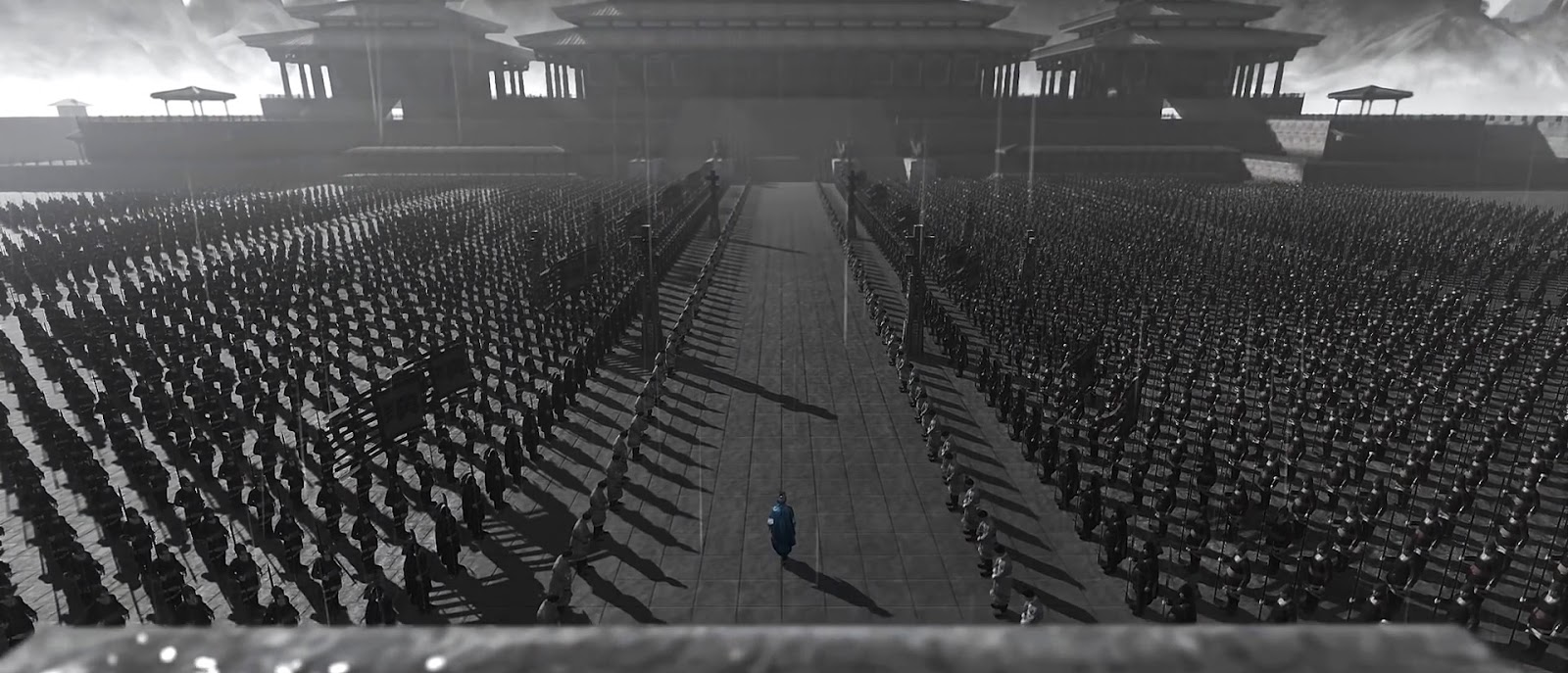
%20(2).jpg)


.jpg)
.jpg)
.jpg)
.jpg)
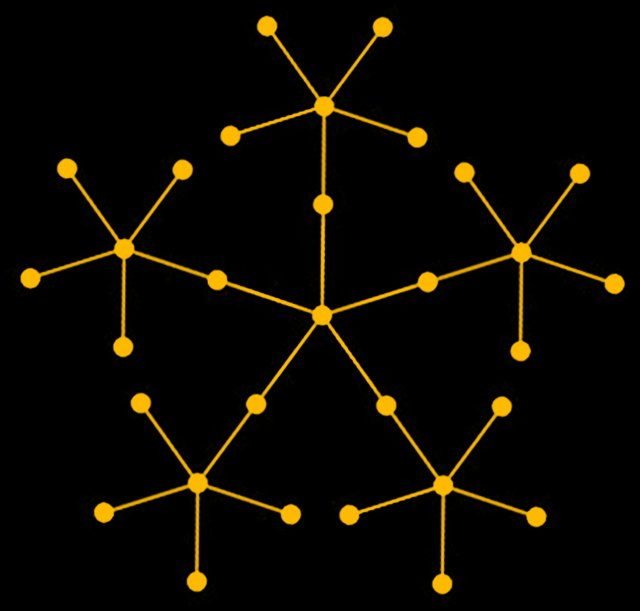

%20(1).jpg)

.jpg)
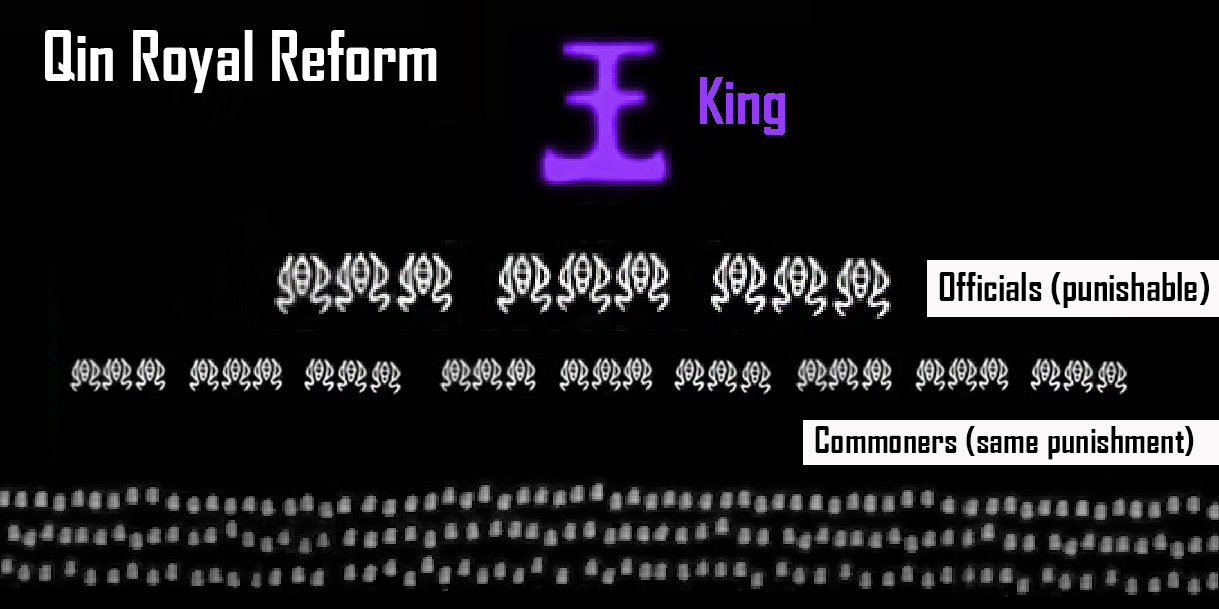
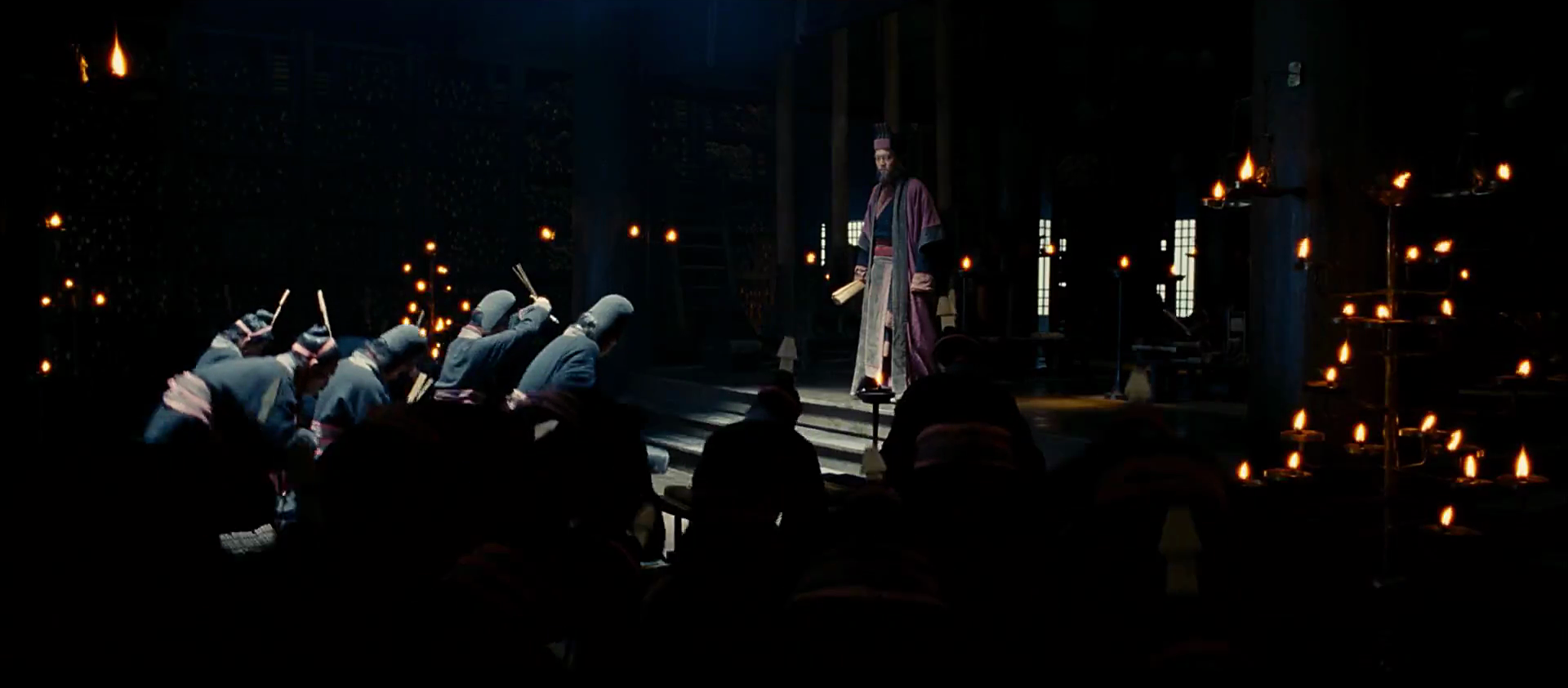
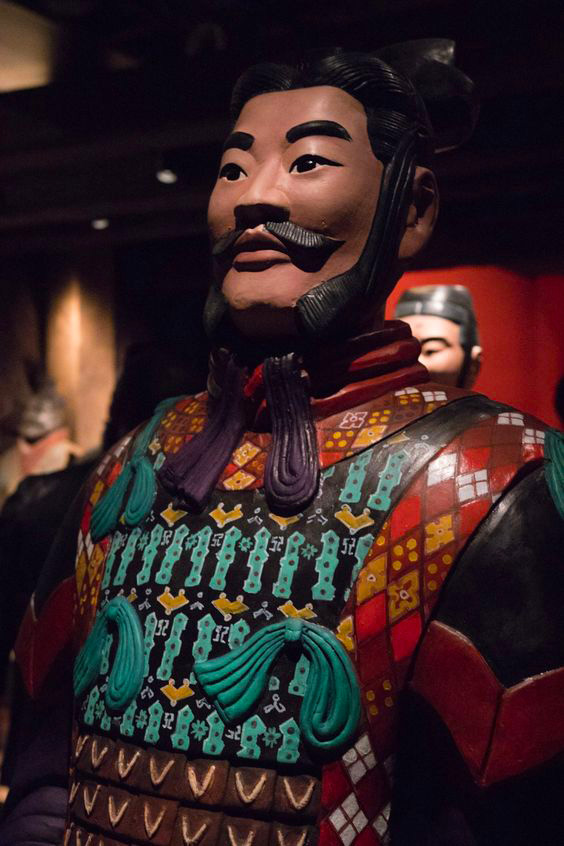

.jpg)


.jpg)
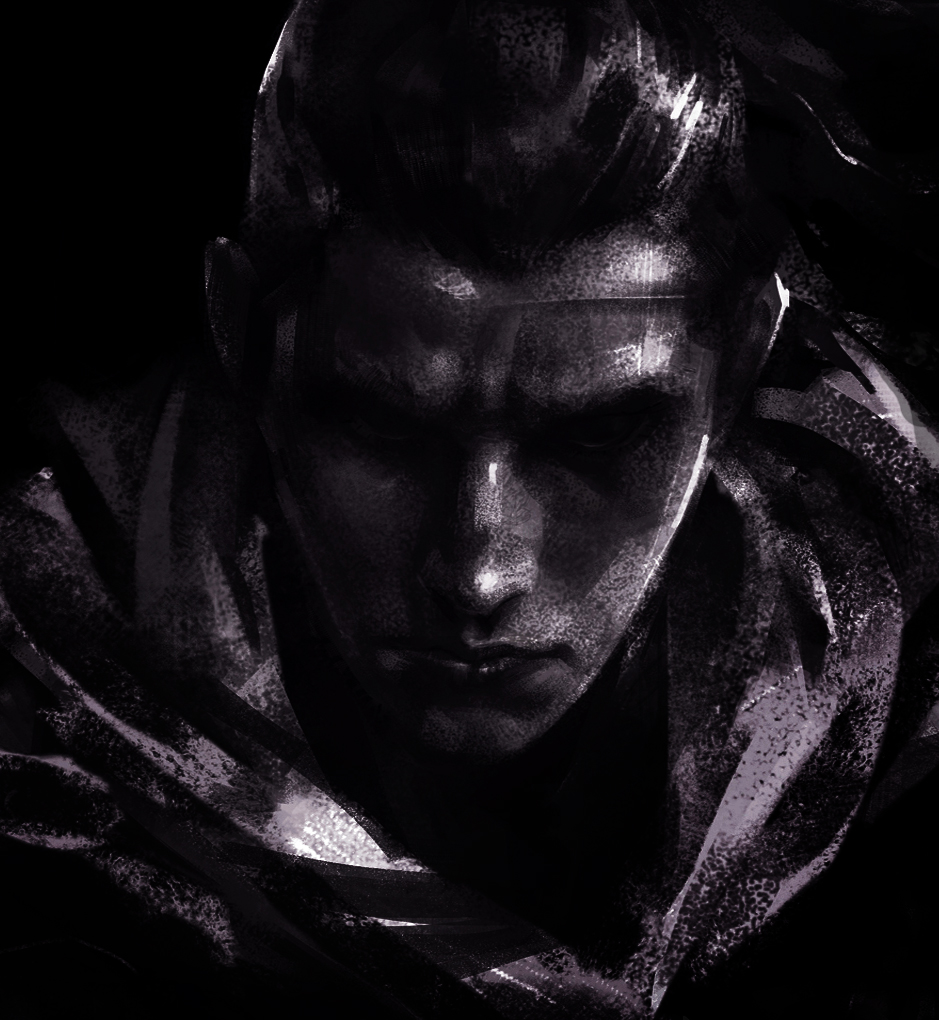
-.jpg)

.jpg)


.jpg)


%20(1).jpg)




.jpg)





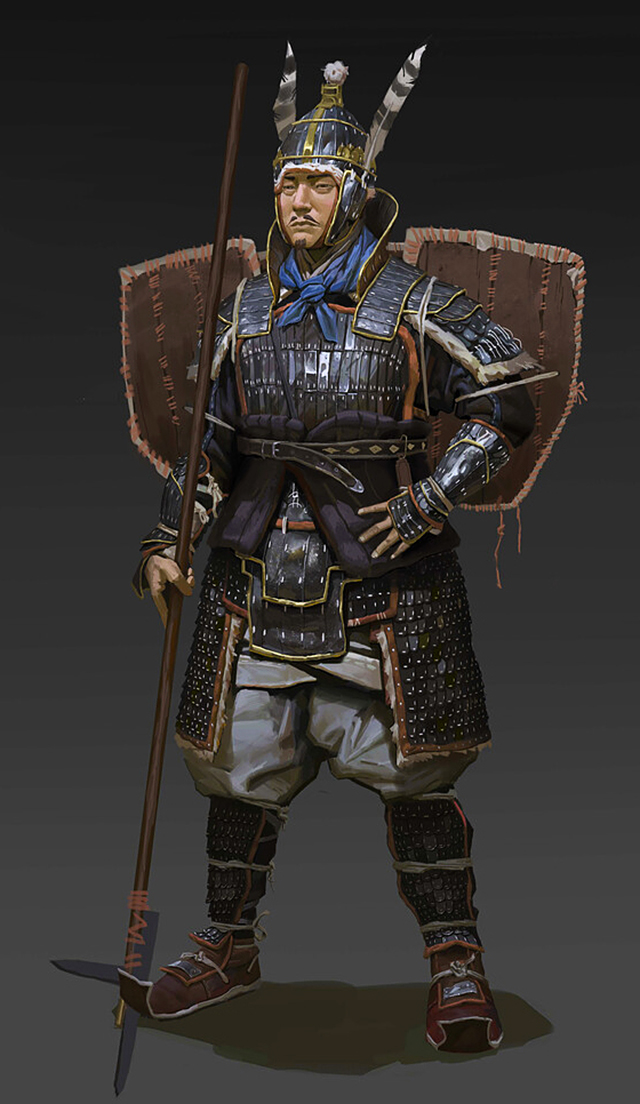







%20(1).jpg)
.jpg)







.jpg)
.png)





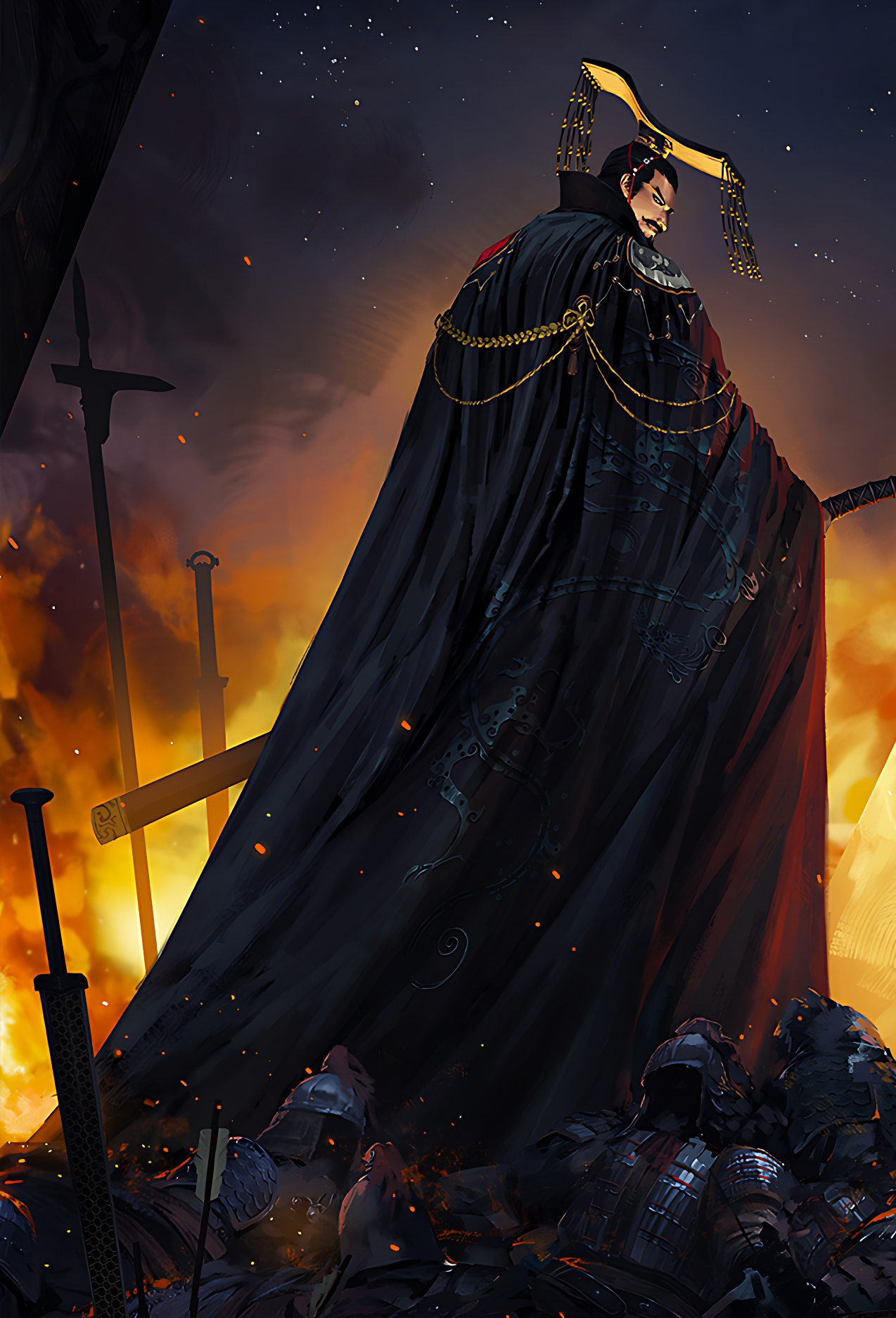


.jpg)
%20(1).jpg)





Comments
THE GREAT CONTROVERSY
It was recorded that after initial long discussion upon meeting with Duke Xiao, Xiao was eager to implement all of Shang Yang's reforms but got cold feet.
After this vigorous discussion Duke Xiao was afraid that the masses of his subjects would disapprove of it, so he hesitated. Xiao then convened a court meeting and ordered his ministers to discuss the matter.
Shang Yang stated: "If you hesitate to act, you will not make a name for yourself. If you hesitate to act, you will not succeed. What's more, behaviors that exceed ordinary people will be criticized by the world; people with independent views will be ridiculed by ordinary people. Dim-witted people can't understand things after they are done, but smart people can foresee what will happen in advance. Thus, you can't plan the creation of wholly new things with the people, but you can share the joy of success with them. Those who discuss the highest morality do not conspire with the world, and those who achieve great things do not conspire with ordinary people. Therefore, as long as the sage can make the country strong, he does not need to follow the old law; as long as he can benefit the people, he doesn't need to follow the old ritual."
1. The flags you have in your pics, are they historically accurate? Did the various Warring States have flags with the character of their State emblazoned on a single colored background like that?
2. It's a pity Shang Yang is not more celebrated, great Reformers like him are rare in human history. Behind every glorious Qin Shihuangdi, Louis XIV, Alexander, Julius Caesar is a Shang Yang, Cardinal Richelieu, Philip II, Marius/Sulla, etc. right??
3. The reforms of Shang Yang bore fruit a generation later with King Huiwen being able to inherit a strong Qin that invaded and conquered Ba and Shu in the Sichuan Basin, great expanding the territory of Qin and adding to its material and human resources. You should do an article on the conquest of Ba and Shu in 333 BCE, it took place in the same year (333 BCE) as Chu's conquest of Yueh, that wasn't a coincidence right?? Fun Fact: the same year as Qin was invading and conquering Ba/Shu and Chu was invading and conquering Yueh, ... a world away in the West a young Alexander was busy invading and conquering Egypt and the Persian Empire. The year 333 BCE was indeed a year of great wars!
4. I've always been curious how these members of the gentry like Confucius, Mencius, and Shang Yang and later on Li Si, Zhang Yi, etc were able to travel throughout the Chinese world and offer advice and give lectures. What language did they speak? Surely Warring States China was even more divided when it came to dialects? How did they communicate? was Shang Yang made fun of with his Wei accent? Was there a lingua franca in the Warring States Chinese World??
5. In European feudalism, the issue of 'legitimacy' is important, and used as an excuse to invade and conquer your neighbors. So the Kings of England claimed to be the rightful Kings of France until 1815, wars were fought for the Spanish and Austrian Successions. Dynastic claims were serious in pre-modern Europe. Was it the same in Warring States China I wonder? Did the ancient Zhou feudal system confer legitimacy I wonder? It's known the Ying royal family of Qin was VERY loyal to the memory of Zhou, it was they who rescued the Zhou Son of Heaven when his capital was sacked and the Zhou King gave the Ying Clan their ancestral lands in the Wei River Valley ... and interestingly, (with the exception of Yan perhaps) ONLY the State of Qin had a royal house legitimately enfeoffed by the Zhou Song of Heaven ... the rest were all 'illegal' usurpers right? Jin was partitioned by its 3 ministerial families, Qi was usurped by the Tian, and Chu was barbarian anyways, ancient enemies of Zhou. Only the Ying of Qin had the magic of the Zhou. Thoughts?
2. Yes, though that's most of human history, some eras the statesman who truly was~ the statesman was not the ruler but the ablest minister around. But most of the time their names are not remembered even in their own centuries. We did just see the age of Liz Truss whizz by like a suppressed fart. I mean look at the fact that most of the late USSR politicians aside from Gorbachev and Yeltsin are almost all forgotten. Rare's there an era where an able minister get an age all to their own: Age of Gajah Mada, Bismarck, Three Pashas etc. Though on a personal level I myself have began to study geopolitics of long dead states recently. On channels such as Old Brittania etc. The older I get the more I find pop history distasteful. I guess I have too many annoying encounters with weebs who think katanas are Wunderwaffes and Netflix adaptations.
3. This I did not realize, I have not put the timeline of Chu into this era much. Many of the sources kept focus on the northern theater (and the West East divide poles) but it is interesting to hear. I don't think I will do much on Ba and Shu's conquest because we know very little about their society for me to speak at length about them. If I don't have a large amount of knowledge to flesh it out I want to avoid having to pad it out with bloat. Shu and Ba were critical in strengthening Qin yes, and Huiwen will be covered, but for his other achievements.
4. The speech and writing form of the old Zhou court aristocrats is called 雅言 Yayan (lit: "Elegant Speech".) By this time yes there would be strong regional accents, the characters and measurements were divergent at this time. But it was still mutually intelligible enough for the courtly scribes and they likely had the easiest time adapting. It's no surprise that these men of letters defined by their ability as literati and scribes were able to internalize the other's way of communication.
5. Well as you know marriage and blood in Europe also at times meaning inheriting the kingdom of the married partner's family. This element did not exist in Zhou feudalism, not saying that blood relatives by marrige won't come to play in some dynastic successions but the Zhou were more stable in this aspect. However, Zhou did have probably more pretext for wars because of their extremely fixation on propriety. Politeness and properness was not only courtly attitude among elites but had a spiritual and even supernatural dimension (after all how did the Shang fell?~ ) so there were many cases where wars and punitive expeditions were launched because the ruler of the attacked country was not "treating the Zhou King with proper respect." (as used against Chu multiple times) Feuds and feuding wars were endemic too, with nobles dueling on chariot for honor and rectifying offenses etc. At times these blow out of proportions and dragged nearby states into it.
Correction, Zhou had probably *as much* pretext for wars.
From modern recollections its easy to forget how extremely religious medieval Europe and MENA was. So those really pad out medieval wars preetexts beyond realpolitique, resources, and ambition. Or how even those religious wars (like the Hussites) often mutate into subfactions.